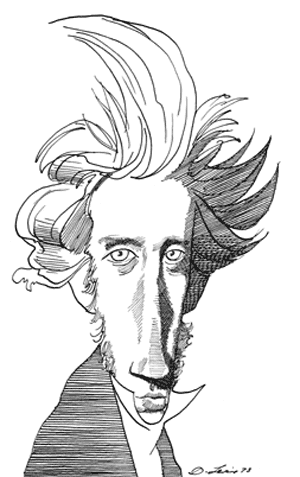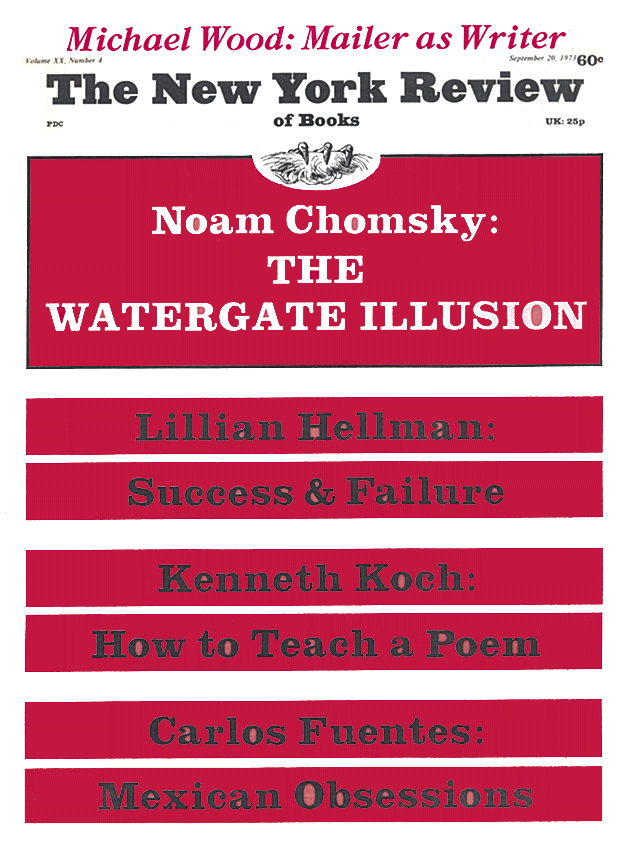To write a book on Kierkegaard is to take a fearful risk. Either one will take Kierkegaard’s own sense of his work seriously—and this is on the whole what Lowrie did in his great and quite properly unseductive life—or one will produce a work that is aesthetic in the sense in which Kierkegaard uses the word. The latter may well be exciting, as a fine study of Plato or John of the Cross may be; indeed, it would have to be very incompetently done not to be exciting, given the interconnections of dialectic and life and attentive reader of Kierkegaard can tease out; but by choosing this approach to the task of writing Kierkegaard’s intellectual biography one would be discarding Kierkegaard’s own criteria for dealing with philosophical and religious topics.
We can imagine Kierkegaard’s comment on any attempt to portray him as an extraordinarily interesting man who becomes the father by adoption and by intellectual affiliation of the schools of existentialism represented by Jaspers and Sartre. He would have said he wasn’t surprised but that this treatment of his work simply confirmed his diagnosis of the present age. For Kierkegaard didn’t try to “make a contribution”—he simply sought the attention of “that individual whom with love and gratitude I call my reader.” It would be presumptuous of any man to claim to be this reader. Not that Kierkegaard is talking about an ideal reader: nothing could be more remote from his meaning. Such a reader would be “not a bit better than the others,” as Kierkegaard said of himself on his deathbed. But he would read Kierkegaard with a responding love and gratitude; and he would share Kierkegaard’s concern for what it is to be a witness to the truth.
In asking for a unique reader Kierkegaard is not asking for a man who would simply endorse his own philosophical and theological positions. Indeed, it seems right to say that what he lacked in his own day was a loving and critical reader. This, together with his repeated insistence that what he writes he writes as a “corrective,” accounts for much in his writing that may strike anyone today as savage beyond the bounds of decency. It is, of course, one of the strangenesses that Kierkegaard finds his reader, if he does, outside Denmark and in the twentieth century. Two readers may be mentioned honoris causa: Theodor Haecker and Walter Lowrie. These two, and David Swenson and Alexander Dru should also be mentioned, are among the scholarly readers of an age now passing who gave much of their energy to the task of simply making Kierkegaard more available. If we ask, though, who through Kierkegaard and with Kierkegaard has done most to shake the structure of theology in the spirit of Kierkegaard, then only one answer is possible: Karl Barth.
It is interesting, and tells us much about Professor Thompson’s intentions in writing his book on Kierkegaard, that in his preface Sartre is mentioned and not Barth; and that he writes that “nearly a century later [than Kierkegaard’s death] Søren Kierkegaard began to find his niche as the father of existentialism.” This is a revealing image. Niches are for effigies. But the person whose effigy is in the niche lives only in those—in the case of Kierkegaard, Sartre and others—who have not yet stiffened into effigies. How much Thompson’s Kierkegaard is an effigy is brought out in his preliminary characterization of what his lifework amounted to:
His answer to nineteenth-century positivism, the philosophical expression of the hopefulness generated by scientific “progress,” is that to the individual man, reality is not “objective” and scientifically determinable, but remains ever problematical, ambiguous. The focus of Kierkegaard’s thought is the individual human consciousness, and his most persistent theme is the difficulty of locating any firm reference point in the quicksand of that terrain…. Man is…a creature of duplicity and doubt, a dissipated being whose life inevitably boils off in theories he can never validate, hopes he can never realize, passions he can never satisfy. When Sartre remarks that “man is like a leak of gas, escaping into the imaginary,” he is speaking Kierkegaard’s language.
Now, this isn’t wrong; it’s outrageous to turn Kierkegaard into anything so banal as this, a kind of romantic Scandinavian neo-Cartesian; but it isn’t wrong. One could find enough written by Kierkegaard to justify it in a way; so it’s a matter of interpretation. I think one of the reasons Thompson slips into this interpretation is that he has got the recent history of Kierkegaard’s influence a bit out of focus. He writes that it was “not until the early 1940s, as the Second World War drew to its close, that he began to achieve international recognition.” This is strange. To have influenced Barth, Przywara, Guardini, Jean Wahl, Kafka, Heidegger, this is surely to have achieved international recognition in the Twenties and Thirties. Two of Haecker’s essays on Kierkegaard appeared in Dru’s English translation in 1937. It just isn’t true that international recognition had to wait for the founding of the great post-Second World War industry of existentialism.
Advertisement
But these are all questions about how well Thompson has rendered the lineaments of the effigy in the niche and about when precisely the effigy was placed there. And if we confine ourselves to such questions, then it has to be said that Thompson has written a vivid and interesting biography, with a useful account of Kierkegaard’s principal works. It is very good popularization and it may therefore win readers Lowrie’s great biography would put off. It is especially illuminating on Kierkegaard’s financial arrangements.
Thompson rejects, without much discussion and without offering any powerful counterarguments, Magnussen’s theory that Kierkegaard’s thorn in the flesh was his being congenitally deformed, a hunchback. The caricatures, some of which Thompson reproduces, are admittedly ambiguous. Whether they depict Kierkegaard as having a scholarly stoop or as having a slight deformity is hard to determine. At any rate, “whether or not he was actually deformed, he experienced his body as a deformity.” This seems right. Perhaps the real explanation, and Thompson twice touches on this, is that Kierkegaard conceived himself as spirit and body, but not as psyche, not as an ensouled body, a man living his life in and through the body. Because of his marvelous imaginative powers he is able to see precisely what he lacks and to conceive how it would be with him if per impossibile he could become a man of flesh. This comes out in the defense of marriage he puts into the mouth of Judge William in Either/Or.
The married man has not killed time but has saved it and preserved it in eternity…. He solves the great riddle of living in eternity and yet hearing the hall clock strike, and hearing it in such a way that the stroke of the hour does not shorten but prolongs his eternity.
Only because he has this imaginative power is he able for a time to enter into the betrothal to Regine. For one desperate moment he thought that he too could solve the great riddle of eternity and yet hear the hall clock strike. When he knew this was a false imagination he broke the engagement. Years later he wrote of this: “When I left her I chose death.” Here death is not failure: it is the necessary condition of his lifework, of the faithful fulfillment of his vocation.
It would be a useful exercise—perhaps someone has done it—to compare Kierkegaard’s death with that of Socrates. Kierkegaard always felt himself to be metaphysically related to Socrates, and both men sought to be witnesses, both suffered death at the hands of the state authorities representing the ordinary run of citizens, Socrates actually, Kierkegaard in simile; he once wrote that his fate would be to be trampled to death by geese. Both provoked their accusers. The contrast lies in their dispositions at the end. There is nothing in Socrates’ last hours to correspond to the dreadful moment when Kierkegaard refuses to receive the sacrament “at the hands of the King’s officials.”
This is a part of Kierkegaard’s vocation to be a “corrective,” but it also discloses how remote he had become from those who live a human life, a life which is both physical and institutional. Kafka in The Trial understands this better than Kierkegaard. The representatives of the Court do not show themselves to be false representatives if they happen to be rascals. The Court necessarily transcends even the highest of its representatives. Thompson notes in his account of Kierkegaard’s death his remark to Boesen that “they [i.e., the Danish clergy] become the sovereign, and it’s all over with God’s sovereignty.” Here Kierkegaard’s dialectical power seems to falter. Of course, nothing could be more absurd than a human representation of God’s sovereignty. But Kierkegaard had spent his entire intellectual life thinking through and overcoming absurdities of just such a kind.
Thompson has used a good deal of material not used by or not available to earlier writers, and for this reason, and because he is lively and, in his use of psychology, acute, his book deserves to be read by all students of Kierkegaard. On only one technical point do I think he has made a serious mistake. In his exposition of a part of Philosophical Fragments, that part in which Kierkegaard tries to show that Christianity confronts us with “the Absolute Paradox”—the identification of the incomprehensible God with the man Jesus—Thompson writes: “‘God,’ Climacus [the pseudonym Kierkegaard adopted for Philosophical Fragments] points out…’is a concept,’ and concepts do not suffer and die on crosses in obscure Near Eastern kingdoms.”
Advertisement
In Swenson’s translation of the Fragments, revised by Hong, the relevant sentence is: “…between God and his works there is an absolute relationship; the God is not a name but a concept.” Thompson’s comment is mistaken for two reasons. First, the identification of the man Jesus with a concept, supposing this to make sense, would be incapable of generating the Absolute Paradox. Secondly, the logical point of Kierkegaard’s remark is that the expression “God” is predicated of a subject; it is not a proper name. Here, as in many other expressions, what is logically predicative can function as a grammatical subject. In Kierkegaard’s argument the subject of which God is predicated is at one moment the Unknown and at another, and because of the Divine predicate, the Absolute Paradox, the God-Man.
This Issue
September 20, 1973



